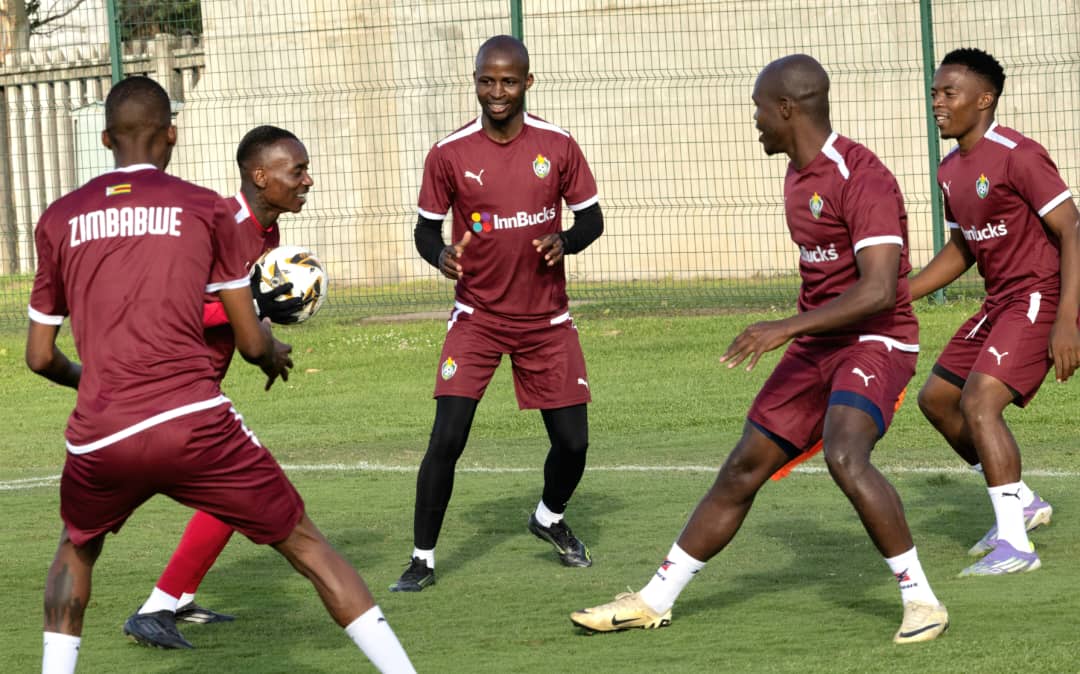Zimbabwe's
2026 World Cup qualification campaign ended in disarray on Monday after
the Warriors slumped to a 1-0 defeat against Lesotho at Peter Mokaba
Stadium — a result that left them winless and rooted to the bottom of
Group C.
The late loss, sealed by a stoppage-time strike from
Hlompho Kalake, completed a humiliating double for Lesotho over their
regional rivals and deepened the crisis for coach Michael Nees, who now
faces mounting pressure to turn things around before the upcoming Africa
Cup of Nations (Afcon) finals in Morocco.
In a blunt post-match
assessment, Nees admitted that Zimbabwe's chronic failure to convert
scoring opportunities had again proved their undoing.
"Disappointed,
not the result we wanted," he said. "Everything came as anticipated —
the long balls, the counterattacks from Lesotho where they are really
strong. And at the end, we lose 1-0 in the final minute. It's bitter."
The
German coach lamented the side's persistent goal-scoring woes, saying
the team lacked both accuracy and composure in front of goal.
"We
need to find a way to bring the ball into the net," he said. "We don't
score enough when we have chances. We don't shoot accurately or we don't
pass the ball when the teammate is free. The final decision-making, the
final concentration — it's similar to what happened against Rwanda.
Almost a déjà vu."
Zimbabwe had several chances to take the lead
through Prince Dube, Jordan Zemura, Bill Antonio and Daniel Msendami,
but all failed to convert.
Nees attributed the team's finishing
problems to a broader weakness in Zimbabwean football, arguing that the
country's low scoring rates extend from club level to the national team.
He
also highlighted poor match fitness as a key factor, noting that few
players were getting regular game time at competitive levels abroad.
"Sometimes
we have good players," Nees said. "Who is playing regularly on a high
level from the start? That's Jordan Zemura and Marshall Munetsi. The
rest are very often under-21, sitting on the bench, or not even in the
matchday squad."
The coach said fatigue from their previous match against South Africa further compounded the team's struggles.
"It's unfortunate that a lot of players were fatigued because they went over the limit against South Africa," he said.
Nees
also revealed that an administrative mishap deprived the Warriors of a
key attacking option after striker Tawanda Maswanhise was ruled
ineligible for losing his passport.
"The one player misplaces his passport, and then we couldn't use him. It's just a chain of unfortunate events," he said.
He added that poor conditioning might be affecting the players' sharpness in front of goal.
"Maybe
when you come close to the goal, you're a little out of breath. You
can't put that energy and focus into the ball," Nees suggested.
Looking
ahead, the coach said he plans to use the next international window to
experiment with new attacking combinations and scout fresh talent.
"We
need in the next window to try other players up front — maybe there is
someone who can put the ball in the net," Nees said. "We create chances,
but the ball must be put in the net."
He cautioned, however,
that players from the domestic league must raise their standards to
match the pace of international football.
"The pace in the local
league and international football is a different level," he warned.
"Players need to get match fitness and start playing regularly for their
clubs."
Despite a winless campaign that saw Zimbabwe finish with
five points from 10 matches — five draws and five losses — Nees vowed
to keep working on the team's weaknesses.
"We have no other
option than to continue working hard," he said. "If you put the ball in
the net, it releases energy. We need that. We can only continue training
and improving — both at clubs and in the national team."
The
Warriors' dismal campaign leaves Zimbabwean fans demanding answers — and
a new sense of direction — before the continent's biggest football
tournament kicks off in 2026.
- Newsday
 OK Zimbabwe posts US$17,8 million loss
OK Zimbabwe posts US$17,8 million loss  Hichilema meets Chivayo
Hichilema meets Chivayo  Millions celebrate Diwali festival in India
Millions celebrate Diwali festival in India  Econet Zimbabwe to delist from ZSE
Econet Zimbabwe to delist from ZSE  Gold edges up as traders await guidance
Gold edges up as traders await guidance  Mnangagwa fires Chitando, appoints Polite Kambamura
Mnangagwa fires Chitando, appoints Polite Kambamura  Young Investment Professional (YIP) Graduate Programme 2019
Young Investment Professional (YIP) Graduate Programme 2019 











 Young Investment Professional (YIP) Graduate Programme 2019
Young Investment Professional (YIP) Graduate Programme 2019
Editor's Pick